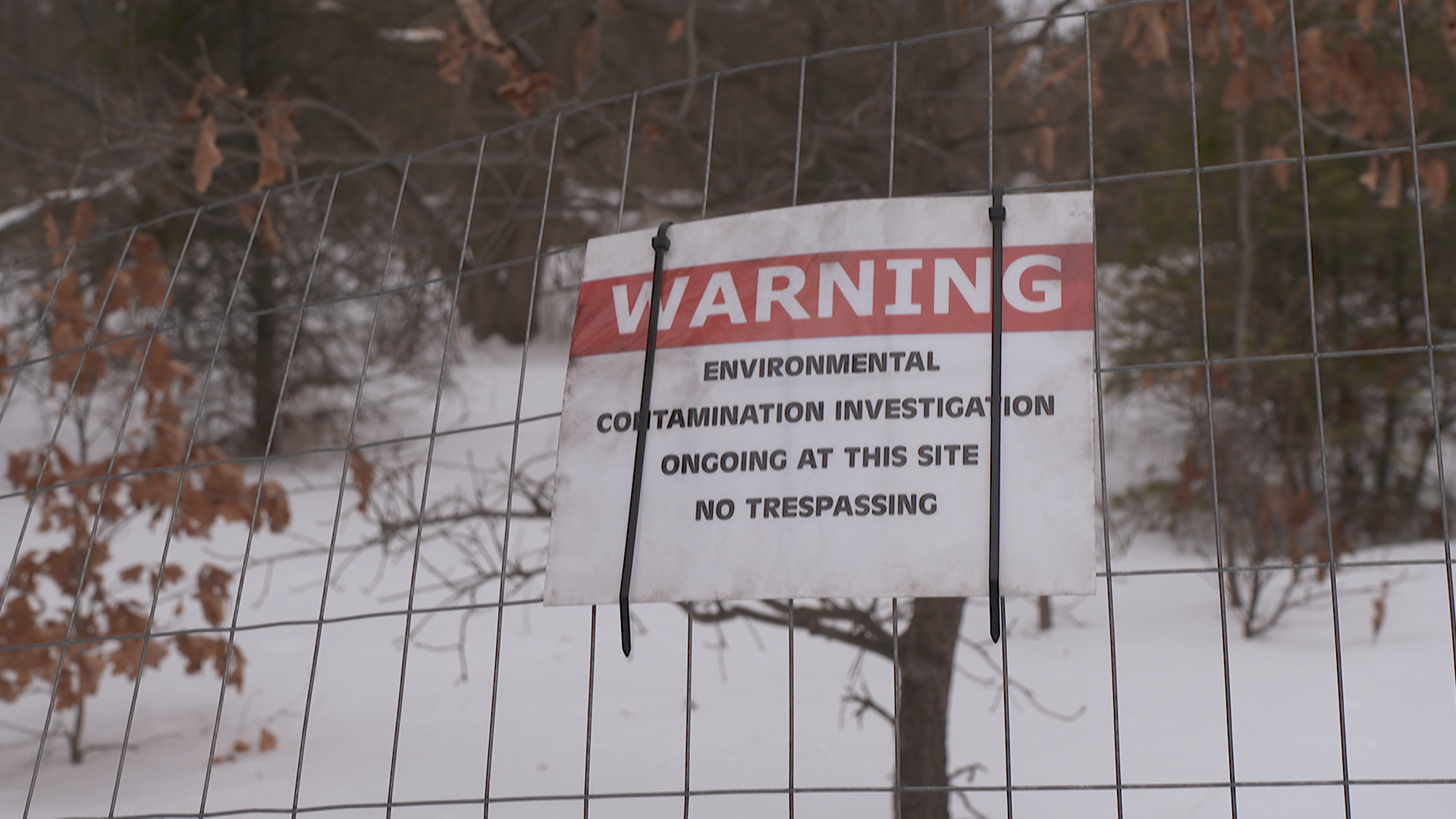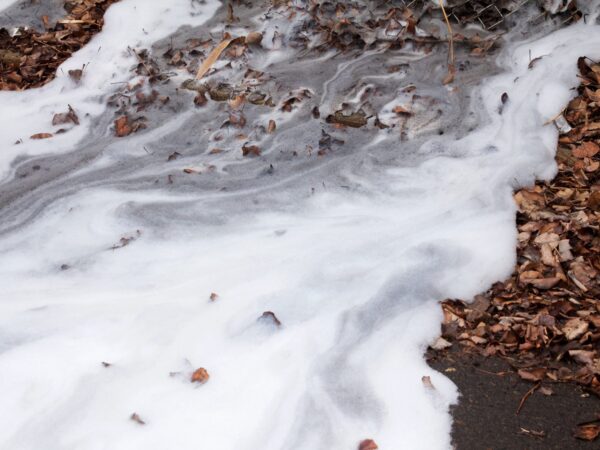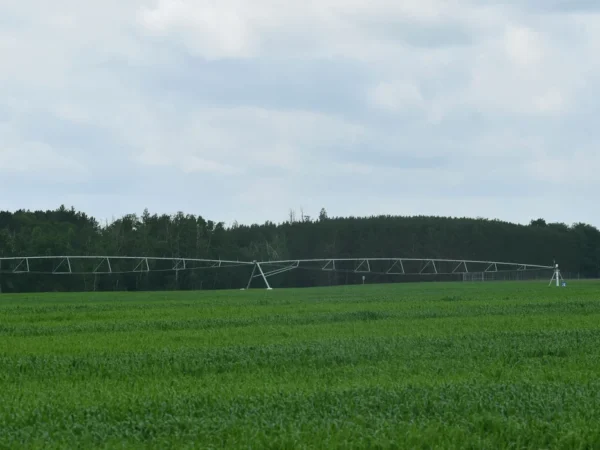
PFAS, short for per- and polyfluoroalkyl substances, are a group of widespread man-made chemicals that don’t break down in the environment or the human body and have been flagged as a major contaminant in sources of water across the country.
Keep up with PFAS-related developments in the Great Lakes area.
Click on the headline to read the full story:
Michigan:
Oakland County advised the state Thursday that PFAS – chemicals resistant to heat, water and oil — have been detected in groundwater beneath the Oakland County International Airport property at levels exceeding state recommended maximum contaminant levels.
The county’s report to the Michigan Department of Environmental, Great Lakes, and Energy, results from state-ordered tests and sampling at the county-owned airport off M-59 as well as 19 other commercial airports across Michigan because of Federal Aviation Administration regulations mandating the use of firefighting foam containing PFAS.
Some levels of PFAS have been found at homes surrounding the former Marquette County Airport. However, most of the chemical is not considered to be at dangerous levels.
In May, the Marquette County Health Department, state health department and Michigan Department of Environment, Great Lakes and Energy (EGLE) tested for PFAS at private drinking wells in Negaunee Township.
Now, those results are coming to light through a Freedom of Information Act request.
Minnesota:
- No PFAS in food packaging in Minnesota by 2024 – Star Tribune
Minnesota’s ban on “forever chemicals” in food packaging will soon head to Gov. Tim Walz for his signature, meaning companies must find replacements for the compounds by January 2024.
For years, the man-made compounds have been used to stop food from sticking and prevent grease and other liquids from soaking into packaging. And while food packaging is just one route for PFAS to migrate into the environment, it is a highly personal one and the focus of a growing number of state bans.
- PFAS chemicals found in Minnesota city’s water is associated with adverse health conditions – Duluth News Tribune
For the last several years, a specific type of PFAS chemical developed by the 3M company has been a big topic for Bemidji. In the last year, the city built a treatment plant to remove the chemicals from its municipal water system, as PFAS were showing up in the wells. While it hasn’t been established that these chemicals directly cause adverse effects, studies have shown health outcomes are associated with PFAS over periods of time.
Pennsylvania:
- Pennsylvania DEP inches closer to setting PFAS limits – Bucks County Courier Times
Pennsylvania may be joining a growing list of states to set their own standards for federally unregulated chemicals known as PFAS.
The state’s Environmental Quality Board voted 18-1 to pursue a Maximum Contaminant Level rule for the per- and polyfluoroalkyl substances found in public and private drinking water wells throughout the commonwealth.
Wisconsin:
A glaring problem right where Joe Biden landed Tuesday was addressed by the president.
French Island residents are caught in a PFAS mess, after private wells were discovered contaminated with the forever chemicals early this year.
Biden talked about the issue during his speech from the La Crosse MTU building on Isle La Plume.
- Dane County supervisor seeks options to regulate airport PFAS remediation – The Capital Times
A Dane County Board supervisor is requesting a legal opinion on what options the county has to regulate construction at the airport and oversee work to clean up contamination from PFAS.
Supervisor Yogesh Chawla, District 6, previously asked for the legal analysis during a recent county meeting. He said he wanted to follow up with a formal resolution, which was introduced at the board’s meeting Thursday.
- DNR to move forward with efforts to limit PFAS in ground, drinking water – Wisconsin State Journal
Wisconsin’s natural resources policy board approved parameters for new regulations limiting toxic “forever chemicals” in the state’s water supply.
Wednesday’s vote by the Natural Resources Board will allow the state Department of Natural Resources to begin writing regulations to limit the amount of certain fluorinated compounds — collectively known as PFAS — allowed in ground and drinking water.
- Johnson Controls to Pay $17.5 M to Settle PFAS and AFFF Firefighting Foam Lawsuits – Consumer Notice
Johnson Controls agreed to pay $17.5 million to settle a class action lawsuit and individual injury lawsuits stemming from chemicals found in aqueous firefighting foam used by its subsidiary Tyco Fire Products, according to court documents.
Plaintiffs claimed they were exposed to per- or polyfluoroalkyl substances through contaminated drinking water in local wells near a Wisconsin Tyco Fire Technology Center that routinely used firefighting foam from the early 1960s to 2017.
National:
The Government Accountability Office called on the Department of Defense this week to detail its cleanup expenses for “forever chemicals” from water supply sources near military bases.
In a report released Tuesday, the government watchdog said the Pentagon has not reported how much it would cost to address perfluoroalkyl and polyfluoroalkyl substances, a class of chemicals found in firefighting foams used by the military.
- PFAS Action Act clears Key House committee – Water World
The House Energy and Commerce committee has advanced the PFAS Action Act, which directs the Environmental Protection Agency to quickly reduce and remediate the toxic “forever chemicals” known as PFAS.
According to the Environmental Working group (EG), The PFAS Action Act of 2021, introduced by Michigan Reps. Debbie Dingell (D), and Fred Upton (R), would create a national drinking water standard for select PFAS chemicals, designate PFAS as hazardous substances, limit industrial discharges and provide $200 million annually to assist water utilities and wastewater treatment facilities.
The Environmental Protection Agency will be required to identify and publicly share the sources of PFAS emissions under a new provision announced Tuesday by U.S. Sen. Kirsten Gillibrand.
The move comes as PFAS chemical contaminations have been at issue in upstate New York communities in recent years and as policymakers have sought a more active role in monitoring potential issues, especially in drinking water.
Catch up on more PFAS news on Great Lakes Now:
Raining PFAS: Amount of PFAS found is outpacing legacy contaminants
API key not valid. Please pass a valid API key.Featured image: Sign warning for environmental contamination (Great Lakes Now Episode 1012)




